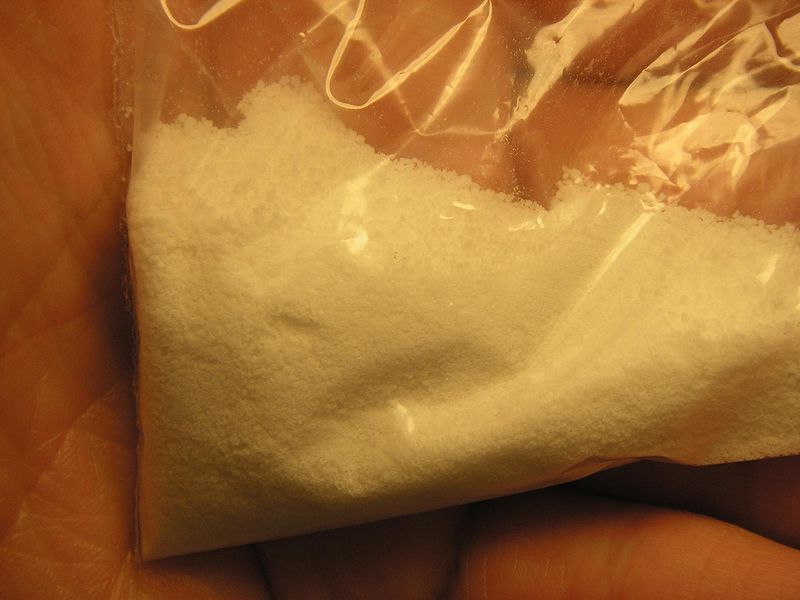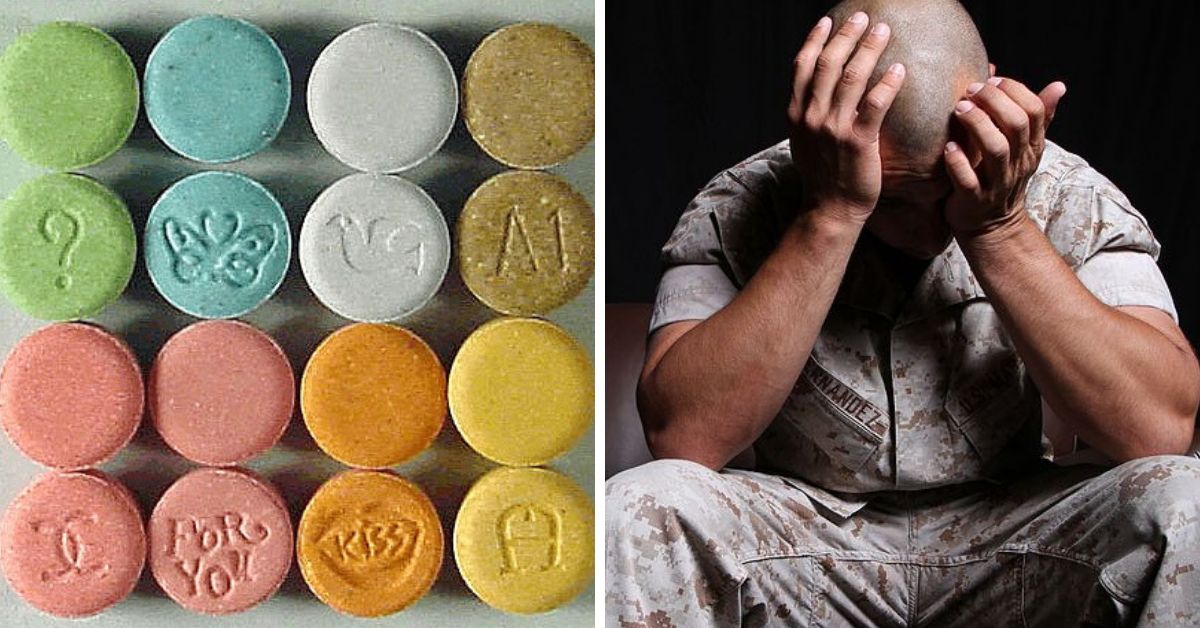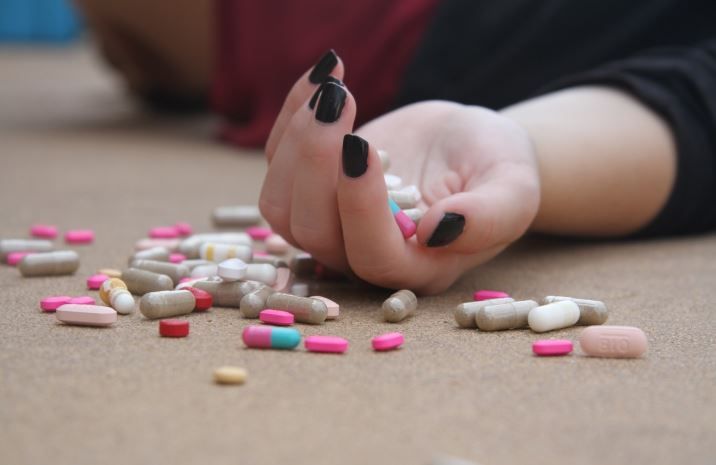Treatment isn't the first thing that comes to mind when you hear MDMA, more commonly known as ecstasy.
This highly addictive drug was developed by a pharmaceutical company in Germany back in the early 1900s, and by the 80s, it became a mainstream drug in party culture.
Millions of young people became users of the hallucinogen, forcing the DEA to place a emergency ban on the substance.
Ecstasy was then seen as a highly dangerous drug, like heroin and cocaine, and believed to have no medical benefits, but now researchers strongly believe that the drug may help veterans with post traumatic stress disorder.
"Peace" and "Clarity"

In the past few years, a lot of research has been done on MDMA, and after many trials, scientists believe the active ingredient in the drug is a safe and effective treatment of PTSD when given during psychotherapy.
The drug has already cleared late-stage studies of up to 300 patients, according to the Associated Press, and researchers will begin screening patients this month.
In previous studies, they found that more than 50% of participants experienced no or reduced symptoms of PTSD.
"Psychedelics have been used for thousands of years for healing and spiritual purposes," Rick Doblin, who has set out to prove the benefits of psychedelics, said. "I thought my contribution would be to bring them back."
He hopes that by 2021 he can win FDA approval, but that's not all. He also hopes that all psychedelics will be legal for recreational use by 2035.
While more research still needs to be done, here's what we know about MDMA and how it may affect people who suffer from PTSD.
Since the drug affects two key brain chemicals, there are a lot of short and long term effects with using MDMA.
Ecstasy boosts serotonin, a feel-good hormone, and increases dopamine, which makes a user feel less fear and encourages them to face their traumatic memories.
That being said, some dangerous short term consequences include elevated anxiety, nausea, blurred vision, tremors, and seizures.
As for the long term effects, since MDMA enhances serotonin, it's believed to deplete natural levels of this essential hormone.
People who regularly use this drug may suffering from confusion, impulsiveness, memory loss, and aggressive behavior, according to drugabuse.com.
However, researchers are motivated to search for new therapies to help people with PTSD.
Each year, approximately eight million Americans are diagnosed with PTSD, which makes these individuals at high risk of substance abuse, unemployment, and suicide.
A majority of veterans who suffer from this disorder and receive psychotherapy have difficultly staying in their treatment programs, which is why effective PTSD therapies are so important.
As of now, millions of dollars have been raised to study the benefits of MDMA, all from wealthy donors.
For example, Rebekah Mercer, the billionaire Republican and co-owner of Breitbart, pledged $1 million to fund PTSD trials.
"America's veterans deserve the very best care," she said in a statement.



